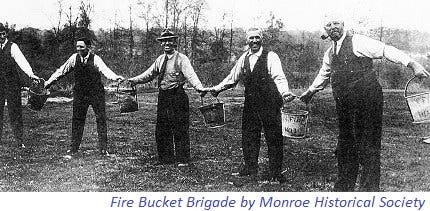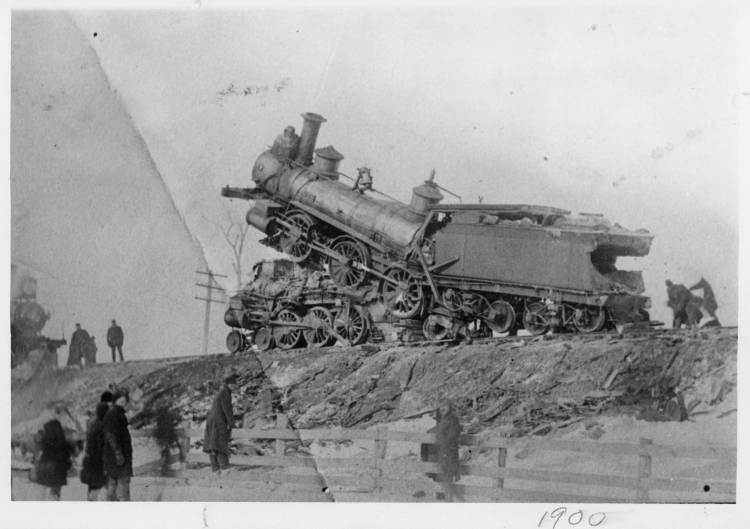Q.
You’ve talked a lot in these threads about what constitutes a story. You’ve given different metaphors to help us visualize a story’s mechanisms—your gas stations, for instance. Your juggling balls. You’ve talked about escalation and how plot emerges through specificity. You’ve talked about not puzzling your reader and not boring your reader, either. You’ve talked about surprising and inevitable endings, how the end of a story comes at that point when you can’t take the question your story is asking any further. You’ve been quoted as saying that “almost every story is a ‘problem story.’ Things are fine, then they’re not. Things are bad, they get worse. We thought this good thing was true, but no: there’s more to it than that.”
All of this is so helpful. It’s all about how to write a story—what is needed to make a story “work.” How to move forward. What I’m noticing, though, as we’ve studied together these past months, is that you have never (as far as I can recall) talked about a story as having a crisis moment. You haven’t said anything like “everything in a story moves toward this one moment when things reach a head—the climactic moment, when the protagonist is called upon to act (and either answers the call or declines).” (I acknowledge that not all stories contain this ‘moment of truth,’ or at least do not show it in an obvious fashion. But to leave out such a convention, a writer really needs to do it on purpose—the lack of conventions becomes part of the point of the story.)
My question is: Do you think about the crisis moment of your stories when you are writing and revising? Are you making sure that such a moment exists? Or is this way of thinking about stories not for you?
As always, thanks so much.
A.
Well, true, and you are exactly right. I haven’t talked about crisis moments. And, as I think about my stories – they nearly all have such a moment near the end, or aspire to – the expectation of such a moment is fundamental to my view of stories.
So, this is a very perceptive question.
The truth is, there’s a certain mindset I go into when I’m writing a story, that produces all the truisms you’ve listed above but, in practice, isn’t being steered by them.
Or: all those truisms (all of my (many) truisms!) are really just observations that fall off of, or out of, that mindset.
A basketball player, let’s say, gets a certain feeling when he steps on to the court, and plays by that feeling. Afterwards, he might have something to say about “always going to the ball” or “intense feelings of competition” or “doing whatever is needed to win.” But those are just conceptual placeholders to try to describe what it was like being inside that feeling.
All are true, none are sufficient.
I think I’ve mentioned the old parable of the blind men and the elephant before here. The elephant is “the feeling that comes over me when I’m editing.” The blind men’s various, partial, descriptions of the elephant are those truisms. Because the thing itself (writing a story) is so unknowable and mysterious, we have to content ourselves with these partial truths.
And the only reason we should care about the truisms is if they help us get better results.
And that would be true of the (truthful) observation that, yes, I am always trying to steer the story toward a crisis moment. (It’s actually kind of telling and funny that I haven’t ever talked about stories in this light, since, upon examination, it is one of my dearest aspirations: to force the story to produce a meaningful crisis.)
We’ve also talked, here, about the idea of making the water boil.
This is one way of talking about converting a story from the “exposition” to the “rising action.” Things are a certain way – that’s the pot of water on the stove. Then things change and the reader feels the increase in tension, and in meaning – that’s the water boiling.
This, in my experience, is the single hardest thing to do in fiction and the thing that differentiates an average or non-working story from a really good one.
Trying to learn this skill is where a writer really begins to find herself – as she asks: “O.K, how do I get my water to boil?” Some people have a natural instinct for this. Others have to really work at it.
When we see the water boiling in a piece of prose, we get that, “Ooh, this just became a story” feeling. The story may go from charming set piece to urgent situation in the blink of an eye; from “here is the way things are, and have been for a long time” to….a very particular and surprising alteration in that status quo. The story starts being about something, something important, something people can recognize as having relevance to their own lives.
These are all indicators that water has started to boil. I sometimes say that one way to get one’s water to boil is simply to inject this line into your story: “Then, one day, everything changed forever.” After that, the water had better boil. :)
I bring up this boiling water idea because “trying to get the water to boil” is a kind of seed notion that will lead us to that longed-for “crisis moment.”
That is: if we can get, and keep, the water boiling, a crisis will naturally arise.
Both ideas (water boiling/crisis moment) share a common DNA that has to do with complicating matters, i.e., arranging things on the page such that a feeling of increased meaning/importance/gravity results.
I definitely want, from the very moment I start a new story, to get to a crisis moment for the character. And I know that this is what the reader wants. Not just from me, but from the form. (There are exceptions, but I’d say that the expectation that things are going to come to a boil is baked into the form, even if the writer sometimes chooses not to fully go there.)
But I also know that if I approach this problem too directly (“What should my crisis be?”) the crisis moment will bolt. Or it will turn out to be too simple, because I’ve willed it into being, instead of waiting for it to come to me of its own accord.
A crisis moment is best discovered, I’d say, as opposed to mandated. Or, a crisis moment arrived at in this way (i.e., organically) will have more integrity and be more undeniable.
And we arrive back at an honored old truism: “No surprise for the writer, no surprise for the reader.” Which then produces this simple version of “craft,” as: arranging things, process-wise, so that it is possible for us to genuinely surprise ourselves.
But there are certain things I can do, day to day, to lure the crisis moment out.
One is to think in terms of what we might call local crisis-building. (Can we take a given, smaller, moment in our story and make it more urgent?)
This might be accomplished by nurturing the fictive moment (the sentence, the paragraph, the section) towards its maximum gravity – making it mean more, convey more, be more enjoyable, more mysterious, funny, evocative. We’re kind of loading up each fictive moment, through revising it, until it feels right; until it’s doing some work. (How do we do this? Right, exactly.)
But – when we do this (whatever it is, however we do it) throughout a piece, there will result a sort of collective stiffening of the story’s spine (a bolstering of its logic) that will, eventually, lead very naturally to what you, dear questioner, have referred to as a “climactic moment.”
As we can see from The Overcoat,” some stories are a series of small crises that culminate in a big one. Akakiy’s coat is no good – that’s a small crisis that Gogol has fully mined for its tension and its comic potential. Then he has to go through the ordeal of getting a coat made, and, ditto, Gogol uses this for everything it’s worth. Akakiy, now the owner of a new coat, suddenly finds himself the center of attention; he has to make his way to that party; he endures the party; he’s robbed; he’s humiliated by the system – we might see this as a series of small, local crises, each of which has been fully exploited and which lead to the big crisis, his death. (Although one of the tricky things about that story is naming the “big” crisis - there are so many. It may also be a sign of that story’s greatness, that the drama, at the end, even after his death, morphs and gets rerouted and maybe even dissipates…)
Anyway, I guess I’m saying that one of the writer’s jobs is to learn how to foment these small moments of crisis, which will then (like a bucket brigade) very naturally transfer energy down the line, to eventually produce the big crisis.

So: taking some nice but random bit of writing and getting it to sit up straight and do something: that’s the essential (vexing, mysterious) skill, the flavor of which, of course, differs for each of us.
Here are some questions that might serve as decent approximations for my mindset as I’m trying to get some blob of prose to “sit up straight”:
Is this scene doing all that it might?
Is it leading me to the next thing that might happen?
Is the reader, as she leaves the scene, smiling/laughing/ gasping/infused with new respect for me, her writer?
Does it have any pop, any snap?
And maybe most importantly of all: Is my reader, who is involved in her own struggles, going to feel honored and seen by this bit? Does it represent something real and important in her life, potentially? Am I just showing off? Am I wasting her time? Is this section considerable enough to put out into the world? Am I taking on something of import, relative to real life? Or am I just diddling around, being clever?
Well, that’s a lot of questions, but really, it’s all one question (one feeling) out of which my edits are proceeding.
The theory is, if the various moments along the way are made to sizzle/pop/be maximized like this, they will very naturally lead to (what will be felt as) a big climactic moment.
At some point, I’d like to discuss my story “Tenth of December” in this context, but this post is already too long. For now, let me just say that the big climactic moment toward the end was nowhere in my mind when I started, but I arrived at it by a two-year process of solidifying the small crisis moments along the way — making them seem real and inevitable and undeniable and stakes-changing.
I’ll try to explain this further in the Comments, if you have questions….








I'm struck by the idea that if we honour the journey, the imagination, the twists and turns, let our story find its path, then we can't know the crisis ourselves. It must come as a surprise to us. As though the line of men with their buckets of water, that increase in size and weight, and begin to boil towards the end of the line, and the final bucket arrives at the final man and at the end we find, not a fire, but a cow with a newly born calf. Got a bit carried away there, that's not really a crisis moment, more of a twist at the end. But are we saying that our obsessing about plot, structure and a journey toward a crisis, is flawed, because we can't create the crisis ourselves it has to arise from the fabric of the story. And if we are good writers we will get good at finding those moments, at spotting them, and warming them up. So its more about listening to the story than it is about telling it...sort of...?
This post somehow addresses nearly everything I’ve been thinking about lately, so, thank you!